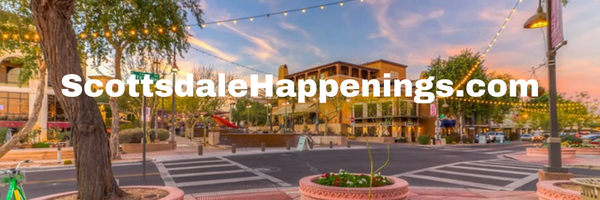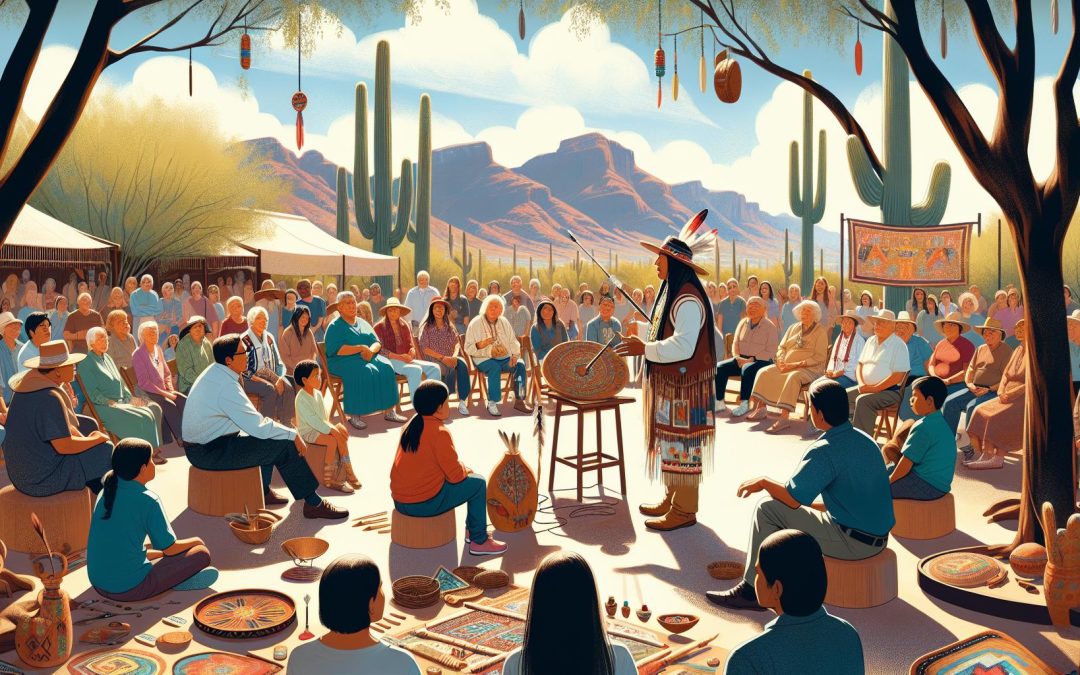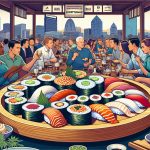I’ve always been fascinated by the rich tapestry of stories that form the backbone of Indigenous cultures. It’s a world where every tale, passed down through generations, carries the weight of history, wisdom, and the profound connection between people and the natural world. That’s why I was thrilled to discover a series of Indigenous storytelling events and workshops right here in Scottsdale, a place I call home.
These gatherings are more than just opportunities to listen and learn; they’re bridges connecting the past with the present, inviting us into a space where ancient voices resonate in today’s world. As I delved deeper, I found myself drawn into a community where stories are not just told—they’re lived. Join me as I explore the vibrant world of Indigenous storytelling in Scottsdale, where every event is a journey into the heart of tradition, culture, and the art of weaving tales that captivate and inspire.
The Importance of Indigenous Storytelling
Following my journey of discovering Indigenous storytelling events in Scottsdale, I’ve come to realize the profound importance of these storytelling traditions. Indigenous storytelling does more than just recount tales from the past; it serves as a vital link between generations, enabling the preservation and transmission of culture, values, and history.
First, Indigenous storytelling fosters a deep sense of community. When storytellers share their tales, listeners gather not just to hear a story but to participate in a communal event that brings people closer together. These gatherings serve as an intimate space where individuals can connect, share their experiences, and feel a part of something larger than themselves.
Second, these storytelling events are a vessel for cultural preservation. Each story contains elements of Indigenous knowledge, language, and values, acting as living repositories of cultural heritage. Through storytelling, nuances of language, moral lessons, and traditional beliefs are passed down, ensuring that they remain vibrant and relevant for future generations.
Third, Indigenous storytelling is a powerful educational tool. It offers a dynamic way to learn about Indigenous histories, philosophies, and the complexities of human and environmental relationships. Stories often encode teachings on how to live in harmony with nature and with one another, providing vital lessons for all attendees, regardless of their background.
Finally, these events and workshops provide a platform for Indigenous voices. They offer storytellers the opportunity to share their perspectives and experiences, thus challenging stereotypes and fostering greater understanding and respect among diverse communities.
In Scottsdale, attending these Indigenous storytelling events has not only been an enlightening experience for me but also an honor. It’s given me the chance to witness how stories can bridge the past and present, educate, and unite communities, affirming the indispensable role of Indigenous storytelling in our world.
Overview of Indigenous Storytelling Events in Scottsdale

Building on my initial enchantment with Indigenous storytelling in Scottsdale, I’ve discovered a vibrant array of events and workshops celebrating this ancient tradition. These gatherings serve not just as entertainment but as powerful conduits for cultural preservation and education.
At the heart of Scottsdale, the Indigenous Peoples’ celebrations unfold throughout the year, each offering a unique window into Native American cultures. Events like the Scottsdale Native Art Market and the Indigenous Culture Festival stand out. They feature storytelling sessions where elders and skilled storytellers share tales that have traveled through time, stories that weave history, moral lessons, and cultural insights with the thread of oral tradition.
Workshops, on the other hand, provide a hands-on approach to storytelling. They’re designed not just for Indigenous attendees but for anyone with a keen interest in learning about the art form. These workshops often cover the basics of storytelling, including narrative structure and performance techniques, while also diving into the deeper aspects of cultural sensitivities and the preservation of heritage through stories.
One standout event is the “Stories from the Land” workshop, hosted annually at the Scottsdale Center for Performing Arts. Here, participants learn directly from Indigenous storytellers, gaining insights into the storytelling traditions of various tribes. The workshop emphasizes storytelling as a living, breathing art form, one that is continuously evolving while remaining rooted in ancient traditions.
My journey into Indigenous storytelling events in Scottsdale has been eye-opening. I’ve learned that these events are not just about listening to stories; they are about understanding the culture, history, and values of Indigenous peoples. They remind us of the power of storytelling to connect us to our past, to each other, and to the land we live on. It’s a rich cultural tapestry that Scottsdale proudly showcases, inviting locals and visitors alike to experience these deeply moving narratives.
Exploring Indigenous Workshops in Scottsdale

Building upon my initial exploration of Indigenous storytelling events, I’ve discovered the enriching experience of attending workshops in Scottsdale specifically designed to dive deeper into Indigenous narratives. These workshops, much like the stories they aim to cultivate, serve as bridges — connecting participants with ancient wisdom through a modern educational approach.
One standout experience for me was participating in a workshop that focused on the traditional craft of storytelling. Led by seasoned Indigenous storytellers, this session offered insights into the narrative techniques that have carried stories through generations. Participants, including myself, learned not only about the structure of traditional tales but also about the cultural responsibilities of being a storyteller. It was enlightening to understand storytelling as an art that respects and preserves Indigenous cultures.
Another engaging workshop delved into the delicate art of crafting personal stories inspired by Indigenous heritage. Here, I uncovered the value of personal narratives in the broader context of cultural continuity. We discussed ways to intertwitably connect our own stories with traditional themes, ensuring that even personal tales can honor collective Indigenous history.
Additionally, workshops that merged storytelling with other art forms caught my attention. A particularly memorable one combined storytelling with pottery, where creating a piece of art served as a physical representation of narrating a story. This innovative approach highlighted the multifaceted ways in which stories can be told and preserved, reaffirming storytelling’s role as a versatile and powerful medium of expression.
The workshops in Scottsdale didn’t just teach me about Indigenous storytelling; they immersed me in a learning experience that emphasized the significance of stories in maintaining cultural heritage. Through hands-on activities and thoughtful discussions, I gained a deeper appreciation for storytelling as both a cultural practice and a personal journey. Participating in these workshops, I realized the profound impact stories have in uniting people, bridging past and present, and fostering a deeper connection with the land and its original inhabitants.
How to Participate in These Events and Workshops
Stepping into the world of Indigenous storytelling events and workshops in Scottsdale is a journey I’ve found to be enriching and transformative. Participating in these gatherings isn’t just about attendance; it’s about immersing oneself in the vibrant tapestry of Indigenous culture and traditions. Here’s how I navigate my way into these meaningful experiences.
Research and Identify
First, I stay informed about upcoming events. Websites and social media pages dedicated to Indigenous cultures or specific event organizers in Scottsdale are my go-to sources. The Scottsdale Native Art Market and Indigenous Culture Festival, for instance, regularly update their schedules and featured storytellers on their platforms.
Register or Purchase Tickets
Some events require prior registration or ticket purchases. I always make sure to secure my spot early, as these storytelling sessions and workshops often have limited availability. It’s not just about securing a seat; it’s about showing respect and commitment to learning from Indigenous educators and storytellers.
Engage and Participate Fully
Attendance is just the beginning; active participation makes the experience truly memorable. I ask questions, participate in discussions, and sometimes, when invited, take part in the storytelling myself. Respectful engagement demonstrates appreciation for the stories shared and the wisdom of the storytellers.
Follow-Up Learning
After the event or workshop, I continue my learning journey. I explore recommended readings, connect with participants and organizers on social media, and, when possible, practice the storytelling techniques I’ve learned in my daily life. Keeping the conversation going, whether online or in person, enriches my understanding and connection to Indigenous narratives.
Reflect and Share
Finally, reflection is key. I take time to think about the stories I’ve heard, the lessons learned, and how they apply to my own life and cultural understanding. Sharing these insights with friends, family, or through my own social media channels, I contribute to the ongoing dialogue about the importance of Indigenous storytelling and culture.
Participating in Indigenous storytelling events and workshops in Scottsdale offers a profound opportunity to connect with stories that have shaped the land and its people for generations. My approach ensures not just participation but immersion in these rich cultural expressions.
The Impact of Indigenous Storytelling Events on Scottsdale
Reflecting on the vibrant Indigenous storytelling events and workshops I’ve experienced in Scottsdale, it’s clear they leave a profound impact on the community. These gatherings are not just about listening to stories from the past but are a living bridge connecting us to the rich cultural tapestry of Indigenous communities.
First, I’ve noticed an increase in community awareness about Indigenous histories and cultures. Events like the Scottsdale Native Art Market and the Indigenous Culture Festival have opened eyes to the depth and diversity of Indigenous narratives. Through stories, people gain insights into traditions, values, and perspectives that are often omitted from mainstream narratives.
Second, there’s a tangible social impact. These storytelling events foster a sense of unity and shared humanity. Attendees, regardless of their background, come together, listen, and learn from one another. This exchange promotes mutual respect and understanding, essentials in a culturally diverse city like Scottsdale.
Educationally, the workshops I’ve participated in have stirred a curiosity among attendees to learn more about Indigenous cultures. They are not just passive experiences but interactive sessions that encourage participants to delve deeper. Schools and educational institutions often follow up these events with further explorations into Indigenous history and culture, enriching curriculums and empowering students with broader perspectives.
Culturally, these events enrich Scottsdale’s cultural scene. They add new dimensions to our communal identity, showcasing the city as a place where diverse cultural expressions are celebrated and valued. Artists, storytellers, and educators from Indigenous communities contribute immensely to this cultural wealth, earning recognition and appreciation far beyond their sessions.
Finally, from an economic standpoint, Indigenous storytelling events and workshops contribute to local economies. They attract attendees who are not just local residents but also visitors interested in Indigenous cultures, leading to increased support for Indigenous artists and businesses.
In sum, these storytelling events and workshops do more than just entertain; they educate, unify, enrich, and even contribute economically to Scottsdale, making them invaluable to our community’s fabric.
Conclusion
I’ve always believed that storytelling has the power to bridge gaps and build connections. The Indigenous storytelling events and workshops in Scottsdale do just that. They’re not just events; they’re a vibrant celebration of culture, history, and community. By attending, I’ve seen firsthand how they open hearts and minds, fostering a deep appreciation for Indigenous traditions. They’ve also shown me that Scottsdale is more than a city—it’s a community that values diversity and inclusivity. Whether you’re a local or a visitor, participating in these events offers a unique opportunity to enrich your understanding of Indigenous cultures while contributing positively to the local economy. It’s a win-win situation that I find incredibly rewarding.







